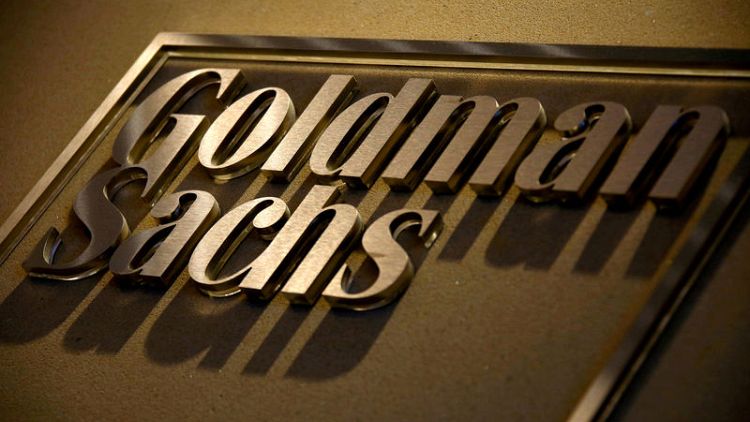By Lawrence White and Emma Rumney
LONDON (Reuters) - Britain's big banks, long able to shrug off competition from start-ups, have been spooked by an account launched just six weeks ago by Goldman Sachs <GS.N> that pays savers more.
One of the banks admitted privately that it has seen a spike in savers switching, while others have launched new accounts or raised rates to try to nip "Marcus" in the bud.
British savers have got used to payouts of 1 percent or less thanks to rock-bottom central bank rates, but the launch of Marcus with a 1.5 percent rate on Sept. 27 has shaken things up.
Google searches for "savings account" hit a five-year peak in Britain in the week of the Marcus launch, a Reuters analysis of data from Google trends shows. (https://tmsnrt.rs/2DbEu6z)
"Yes we are worried about Marcus, we have seen significant outflows from our savings products although I question if they can keep growing at that speed," a senior executive at one of Britain's biggest lenders told Reuters.
Marcus has signed up 100,000 customers since its launch, its managing director Des McDaid told Reuters, adding that it wanted to put the lethargy in Britain's savings market on the agenda.
Since the financial crisis, Goldman Sachs has been trying to attract mass-market deposits to fund its other activities. It launched Marcus, whose emphasis on a customer-friendly image and simplicity contrasts with public perceptions of Goldman Sachs as a pillar of the financial elite, in 2016 in the United States.
But while some such as Royal Bank of Scotland <RBS.L> and Nottingham Building Society matched Marcus after its British launch, most bank rates are still well below 1.5 percent.
A top executive at another of Britain's biggest banks said he was more worried about Marcus than other rivals because of the hefty financial firepower and institutional backing that Goldman Sachs provides as one of the biggest investment banks.
"We worry more about firms who start to play that already have capital... big, meaty players that can stay the course are more concerning than what's going on in a garage in Shoreditch," he said, referring to the London home of a number of start-ups.
Start-up digital-only banks like Monzo, Starling and Tandem have succeeded in attracting hundreds of thousands of users in Britain, but have yet to turn that into consistent profits.
(Additional reporting by Sinead Cruise; Editing by Alexander Smith)



